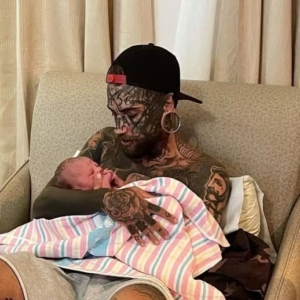llen DeGeneres has long been celebrated for her humor, honesty, and the way she turns life’s awkward moments into laughs. However, when she shared her experience with COVID-19, the story she told wasn’t funny at all. Instead, it was raw, unexpected, and, as she described it, “incredibly painful.” What surprised her most wasn’t the fever, fatigue, or loss of taste that everyone was talking about—it was something far less discussed: intense back pain.
In December 2020, during the height of the pandemic, Ellen announced that she had contracted COVID-19 despite taking every precaution. She quarantined, followed medical guidelines, and braced herself for the usual symptoms. But what she didn’t anticipate was the pain she would feel in her back.
“What they don’t tell you,” she later said, “is that you’ll have severe back pain. I had no idea that was a symptom until I talked to a few others who went through the same thing.”
At first, she thought it might just be a pulled muscle or stress. But the pain only grew worse, radiating across her shoulders and spine, leaving her unable to sleep. For someone used to being active and energetic, this sudden immobility was shocking.
Ellen’s openness struck a chord because it highlighted a lesser-known and often misunderstood symptom of COVID-19. Her honesty made others who had experienced similar pain feel seen and validated. Many shared their own stories online, revealing that they too had endured severe muscle and back pain but had dismissed it as unrelated to the virus.
Medical experts quickly explained that musculoskeletal pain, including back pain, can result from the body’s inflammatory response to COVID. The virus doesn’t only attack the respiratory system; it can trigger widespread inflammation in muscles, joints, and nerves. In some cases, an overactive immune response creates a deep, unrelenting ache that lingers for weeks—even after other symptoms have subsided.
For Ellen, the pain wasn’t just physical—it was emotional. She had to slow down for the first time in years, isolated from her usual routines, her team, and her fans. Known for her relentless work ethic and upbeat spirit, Ellen described these days as some of the hardest of her career. “You think you’ll just ride it out,” she said. “But the exhaustion hits you in ways you can’t explain. You feel helpless.”
What resonated most with people wasn’t just the severity of Ellen’s illness, but her candor. While many public figures downplayed their symptoms, Ellen chose to share the truth as it was—painful, unpredictable, and humbling. She reminded the public that no amount of fame, money, or positive thinking can protect anyone from the vulnerability of being human.
Her story broadened the understanding of COVID-19. Up until then, most public messaging had focused on fever, cough, and loss of smell or taste as the main symptoms. Ellen’s revelation added another layer to that narrative, showing that the virus doesn’t always follow predictable patterns. Some patients may suffer neurological symptoms like brain fog or dizziness, while others, like Ellen, endure debilitating muscle or back pain. It became clear that each person’s body reacts differently, and these differences matter.
Doctors later confirmed that back pain was a relatively common symptom of COVID, especially in moderate cases where inflammation spread beyond the lungs. Some patients even experienced chronic musculoskeletal pain long after their recovery—a condition now known as “long COVID.” While Ellen’s pain was temporary, it highlighted how little was understood about the full range of effects the virus could have.
The timing of Ellen’s diagnosis also made her words more impactful. By late 2020, many people were already fatigued by the ongoing lockdowns and uncertainty. Warnings and statistics were starting to blur together. Hearing a global celebrity speak so frankly about her personal battle broke through that fatigue. She wasn’t reading from a script or issuing a press release—she was sharing her lived experience, unfiltered.
Ellen didn’t share her story for sympathy but to raise awareness. Her message wasn’t just about physical pain; it was about the importance of listening to your body and recognizing symptoms that don’t fit the typical description. “Everyone’s talking about coughing and losing taste,” she said. “But no one mentioned back pain so bad it made you cry.”
Her comments sparked a larger conversation about how COVID’s less visible symptoms were often overlooked—not only by the public but by healthcare providers as well. Many people who had experienced similar pain didn’t realize it was connected to COVID until Ellen and others spoke out. In online forums and interviews, patients began to share that their back pain had been so intense they could barely stand, yet their doctors initially thought it was due to stress or bad posture.
Ellen’s experience also highlighted something even more significant—the power of empathy in times of crisis. When she said, “I had no idea that was a symptom,” she wasn’t just talking about her back pain. She was acknowledging the fear and isolation of not understanding what was happening to your own body. Her vulnerability made her relatable in a way that few celebrity confessions do.
Her openness gave others the courage to speak up about their symptoms and recovery. For those dealing with long-term effects or symptoms that were not recognized, Ellen’s honesty was invaluable. It reminded them they weren’t alone, and that their experiences—no matter how strange or invisible—were valid.
Doctors say that stories like Ellen’s are crucial for shaping public understanding. While scientific data provides the facts, personal stories offer the human context—how it feels to live through something that numbers can’t fully capture. These stories also encourage the medical community to continue exploring the lesser-known effects of the virus, from nerve pain to cognitive issues.
As the pandemic continues to unfold, Ellen’s story serves as a reminder: COVID isn’t just a list of symptoms. It’s a deeply personal experience that can affect people in unexpected ways. Though her back pain was one of the more obscure side effects, by sharing it, she helped open up a conversation that reached millions.
Looking back, Ellen has said she’s grateful to have made a full recovery, but she doesn’t take it lightly. “It was scary,” she admitted. “I didn’t know what was happening to my body. But I’m lucky—I got through it. And I’ll never underestimate what anyone might be going through again.”
In true Ellen fashion, she later found a way to inject humor into the situation, joking that her back pain made her “feel eighty-five overnight.” But beneath the humor, her message was clear: pain, whether physical or emotional, deserves recognition, not dismissal.
What started as a personal health scare ended up becoming a powerful lesson in empathy and awareness. Through her story, Ellen DeGeneres reminded the world that illness doesn’t look the same for everyone—and sometimes, it’s the unexpected symptoms that teach us the most about compassion.





